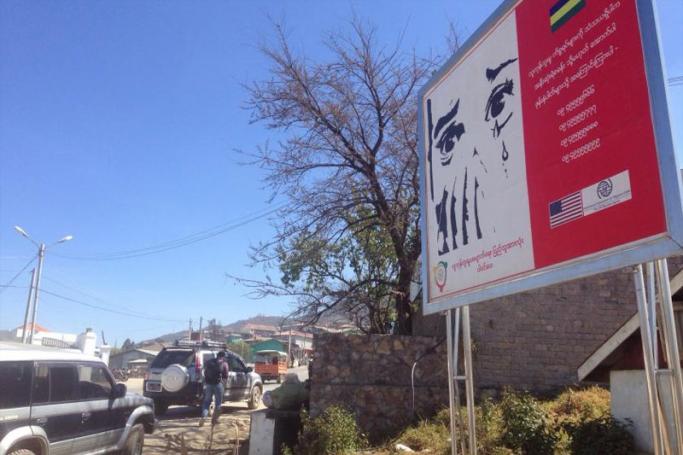She fled her forced marriage in China without any shoes, but she made sure to bring a smartphone.
After wading barefoot through waterlogged fields and reaching an unfamiliar town where she felt safe from capture, Li Han turned on the device and opened WeChat.
The social media app is ubiquitous in China, and for many trafficked women it is key to securing freedom.
She messaged her location to a volunteer from the WeChat White Charity Group, who arranged for a driver to collect her so she could begin the long journey back to the border.
Li Han, who asked to be referred to by her adopted Chinese name, is one of 50 women the organisation has saved in the past two years.
The network connects those who want to come home with their families, helps plan escape routes, and tips off the police about brokers and returning women.
Li Han, who is 27, was first sold to a man in early 2017 after being tricked by brokers who said they would find her a job.
When she was unable to get pregnant, they sold her to a second man. Shortly after, she began plotting her escape via the app.
Thousands of Myanmar women have been sold as brides in recent years in China, where a surplus of some 34 million males fuels a lucrative industry in brides.
Only a few manage to return home, but those who do are increasingly making use of online networks to help them get out.
WeChat can be used to transfer money, pay at shops, and purchase tickets for travel, and it also allows users to share their locations - all features that make it invaluable for escapees.
“If I didn’t have the WeChat account… I could never have come back to Myanmar in this lifetime,” Li Han said.
‘I’ve been sold, help me’
In late 2016, Tun Tun, a 48-year-old Yangon resident, was playing around on WeChat when a message popped up.
“I’m in trouble, I’ve been sold,” it read. “Help me!” A woman trapped in a forced marriage in China had apparently been messaging anyone she could find back in Myanmar in the hope of being rescued.
Tun Tun messaged back saying he would help, and offered to get in touch with her family in Myanmar. He also went to the police.
But the woman stopped responding, and he was never able to get her out.
The experience led him to set up the White Charity Group, a network of volunteers that includes Myanmar citizens who live in China.
Though the group has saved dozens, many others like the first woman go offline before escaping and are lost.
The group can’t afford to pay for the car rentals and bus tickets needed to get the women back to the border, so they ask the women to raise the cash themselves.
Some pawn jewelry, or use money given to them by their husbands, to help cover costs of anywhere between 100,000 and 700,000 kyat, or roughly US$450.
This, says Tun Tun, has been used against the group by brokers, who have posted on WeChat groups claiming his charity are themselves involved in selling women, and warning people not to send them money.
“Brokers criticize and attack us,” he said. “We have been mistaken for brokers a couple of times because we have to talk about money.”
The White Charity Group is among a number of organisations in Southeast Asia tackling trafficking with WeChat.
In Laos, the group Village Focus International trains at-risk women to post messages on the app if they find themselves in trouble.
The Vietnam-based group Blue Dragon uses WeChat to connect with women in China and orchestrate their rescues.
‘Wrong to come back’
The two Myanmar brokers who sold Li Han were caught and sentenced to 20 years in prison.
After she arrived in China and found out she was expected to marry someone, the brokers told her they would send money to her family if she cooperated.
“I went through two husbands but the brokers didn’t give me a single pya,” Li Han told Myanmar Now, referring to a defunct unit of currency valued at 100th of a kyat.
“They didn’t send any money to my family either. If I’d worked as a prostitute I would have earned money.”
Life has been tough since she returned home, Li Han said. People treat survivors like her with the same contempt they do sex workers, she said, and she is struggling to find work.
“I want a job so badly. I would do anything, even work as a maid,” she said, wiping tears from her cheeks. “I am starting to think that it was wrong to come back.”
Courtesy Myanmar Now












